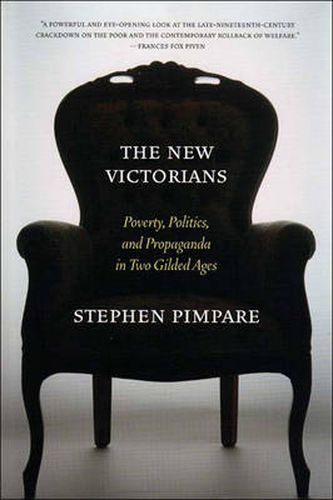Readings Newsletter
Become a Readings Member to make your shopping experience even easier.
Sign in or sign up for free!
You’re not far away from qualifying for FREE standard shipping within Australia
You’ve qualified for FREE standard shipping within Australia
The cart is loading…






During the economic boom of the 1990s, arguments about the moral failings of the poor were used to pass welfare reforms heralded as the solution to a system that had failed everyone. Yet, as historian Stephen Pimpare demonstrates in this revealing social history, remarkably similar arguments were used to disastrous effect in campaigns against aid to the poor in the last quarter of the nineteenth century. In The New Victorians, Pimpare reveals the disturbing parallels between the anti-welfare propagandists of the nineteenth century and the elite actors and well-funded policy research organizations of today. Alarmingly, he shows how the New Victorians of today often invoke the rhetoric of their predecessors while ignoring the complete failure of nineteenth-century reforms. The New Victorians goes on to uncover the elite and grassroots resistance in the Gilded Age that paved the way for the counter-reforms of the Progressive Era, revealing urgent lessons toward renewing support for broader state defense of the poor today.
$9.00 standard shipping within Australia
FREE standard shipping within Australia for orders over $100.00
Express & International shipping calculated at checkout
During the economic boom of the 1990s, arguments about the moral failings of the poor were used to pass welfare reforms heralded as the solution to a system that had failed everyone. Yet, as historian Stephen Pimpare demonstrates in this revealing social history, remarkably similar arguments were used to disastrous effect in campaigns against aid to the poor in the last quarter of the nineteenth century. In The New Victorians, Pimpare reveals the disturbing parallels between the anti-welfare propagandists of the nineteenth century and the elite actors and well-funded policy research organizations of today. Alarmingly, he shows how the New Victorians of today often invoke the rhetoric of their predecessors while ignoring the complete failure of nineteenth-century reforms. The New Victorians goes on to uncover the elite and grassroots resistance in the Gilded Age that paved the way for the counter-reforms of the Progressive Era, revealing urgent lessons toward renewing support for broader state defense of the poor today.